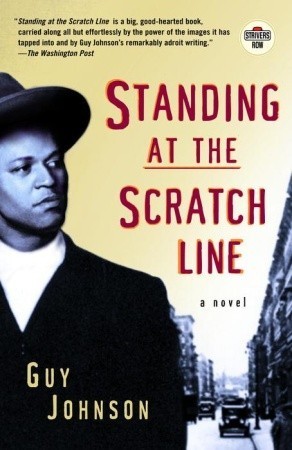
Juneteenth
Book Description
A lone man navigates a world steeped in the shadows of history, where freedom dances tantalizingly out of reach. As the weight of the past collides with the promise of hope, he grapples with identity, race, and the lingering scars of oppression. In the midst of celebration and sorrow, the essence of humanity clashes against a backdrop of societal change. Relationships ignite and fracture, revealing truths that can shatter or unite. Can one voice rise above the silence and reclaim a legacy lost in the tumult of time? Experience the relentless pulse of ‘Juneteenth’—will it unveil the freedom you’ve been searching for?
Quick Book Summary
"Juneteenth" by Ralph Ellison follows the intertwined lives of Reverend Alonzo Hickman, a black preacher, and Senator Adam Sunraider, a prominent white politician who harbors a hidden past. As Sunraider is gravely wounded in an assassination attempt, he summons Hickman, the father figure who once led him through the rituals and songs of African American faith communities. Through Hickman's recollections, the novel uncovers the senator's upbringing as Bliss, a boy raised in a black congregation. Themes of identity, race, memory, and reconciliation pulse through their complex relationship. Ellison explores the persistent legacy of slavery and racism, the fragmentation and quest for personal and collective identity, and the profound, painful intersections of history and hope within American society.
Summary of Key Ideas
Table of Contents
Legacy of Slavery and Collective Memory
The narrative structure of "Juneteenth" is nonlinear and heavily reliant on memory, flashbacks, and the power of storytelling. The central encounter takes place in a Washington, D.C. hospital, where Senator Adam Sunraider, after an assassination attempt, asks for Reverend Hickman, his former guardian. The chapters unfold through shifting perspectives and rich anecdotes, providing glimpses into both the senator's turbulent present and his enigmatic past as Bliss, a white child raised within Hickman's Black church. This method exposes multiple layers of identity and experience, blurring lines between history and myth as the characters grapple with the realities of race and belonging.
Search for Personal and Racial Identity
At the heart of the novel is the theme of racial identity and legacy. Sunraider’s upbringing by Hickman immerses him in the customs, celebrations, and spiritual life of African Americans in the post-Reconstruction era, particularly the vibrantly symbolic Juneteenth holiday commemorating the emancipation of enslaved people. Yet Bliss’s racial ambiguity and eventual rejection of his Black family to pass as white reflect the painful complexities and societal pressures surrounding identity formation in America. Ellison probes the psychologically charged process of negotiating heritage, self, and social expectation.
Redemption and the Power of Forgiveness
Memory, history, and collective trauma underpin the unfolding events. Hickman's reminiscences are steeped in hope, regret, and a sense of moral responsibility, echoing the way Juneteenth itself is a moment of both celebration and mourning. Ellison’s lyrical prose gives voice to personal and shared suffering—the violence and betrayal experienced by both individuals and the Black community. This tension reveals how the wounds of slavery persist, shaping even those who attempt to escape or deny their histories, and underscores the need for reckoning and reconciliation.
Voice, Storytelling, and Community
Voice and storytelling are potent forces within the novel. Hickman, as preacher and storyteller, animates the narrative with sermons, parables, and song, embodying the oral traditions that have historically bound Black communities together. Sunraider's role as a public orator—now silenced by tragedy—highlights the struggle for self-expression and recognition within a society rife with silencing and erasure. The interplay of voices enriches the communal search for truth and meaning amid chaos and change.
Hope and Transformation in the American Experience
Ultimately, "Juneteenth" is a meditation on the possibility of redemption and the enduring quest for freedom—freedom from ignorance, hatred, and historical chains. As past horrors surface, the novel gestures toward the fragile hope of healing through forgiveness, understanding, and the affirmation of shared humanity. Amid turmoil, the relationship between Hickman and Bliss/Sunraider, though scarred, becomes a microcosm of the American journey toward unity and self-discovery, offering the promise that from painful reckonings, new legacies and transformed identities might yet emerge.
Download This Summary
Get a free PDF of this summary instantly — no email required.





